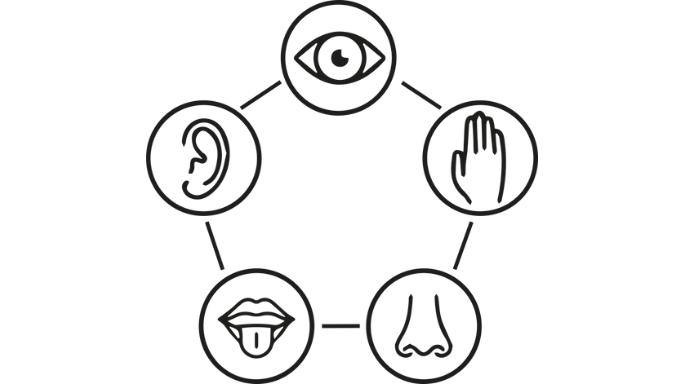Research projects
Redrawing feminism: graphic narrative engagements with the feminist past
Vasiliki Belia received an NWO grant to fund her PhD research 'Redrawing feminism: graphic narrative engagements with the feminist past'.
Feminism is gaining purchase in politics and culture globally while simultaneously facing a transnational backlash. As a result, the term 'feminism’ constitutes a site of contestation whose meaning is constantly renegotiated. This entails revisiting the feminist past, which is invested with desires that reflect contemporary needs: the need to create certain images of today’s feminisms and to envision feminisms for the future. The past decade has seen an explosion of Anglophone graphic narratives that directly engage with the history of feminism and negotiate its meaning in the present. The popularity and accessibility of the genre imply that more and more people learn about the history of feminism this way. Therefore, it is urgent to examine the ideas of feminism that they create and disseminate.
This project is the first in-depth examination of the role graphic narratives play in the cultural revival of the feminist past. It draws on feminist historiography and graphic narrative studies to ask: How do contemporary graphic narratives reimagine the feminisms of the past? In order to answer this question, this research examines a selection of contemporary graphic narratives combining contextual feminist narratology with comics analysis. It addresses the affordances of the genre of graphic narrative that make it an apt tool for telling feminist stories. Moreover, it surveys how historical feminist figures, debates and events are imagined, and which role they play in the construction of feminism as a collective frame of action in the present.
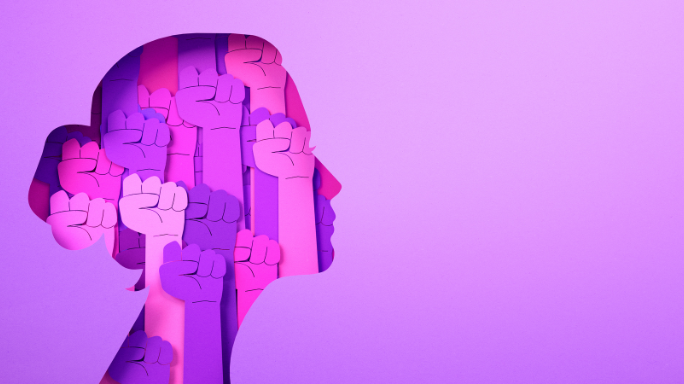
Towards an Animal Turn in Sociolinguistics. Understanding the dairy cow’s interaction with humans and with each other.
The goal of this project is to provide proof of principle for an animal turn in sociolinguistics, i.e., for an inclusive sociolinguistics that does not separate human and non-human animals on the basis of the language criterion, but instead studies interactions between animals, and between animals and humans in a wide context. From the AMC research group, Prof. Leonie Cornips is involved in the project.
The project focuses on dairy cows. In conformity with careful ethnographic fieldwork, the project will find out how different herds of dairy cows, with different relationships with humans, imbue their interaction with meaning that makes sense for both dairy cows and humans under specific social conditions.
The main investigative challenge is to understand intraspecies and interspecies interactions as embodied, multimodal and sensory phenomena. Examining the local meaning-making by the dairy cow allows sociolinguistics to critically reflect on their ideologies towards animal interactions within power dynamics which would position sociolinguistics in the current interspecies ethics debate in the Anthropocene.
Project partners:
- NL-Lab/Meertens Instituut
- Royal Netherlands Academy
Photograph: Henk van de Ven
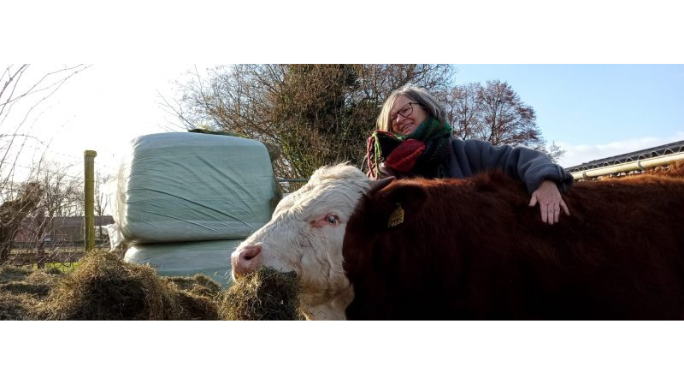
DigiKAR (Digitale Kartenwerkstatt Altes Reich)
This project experimentally visualises spatial information from two regions in early modern Germany (Electoral Mainz and Electoral Saxony) to critically reflect on traditional perceptions of borders and belonging in the Holy Roman Empire. In addition to administrative structures, the project takes an interested in people's cross-border mobilities.
From AMC, Dr. Monika Barget is involved in the project.
Project partners:
- IEG Mainz
- JGU Mainz
- IOS Regensburg
- IfL Leipzig
- EHESS Paris
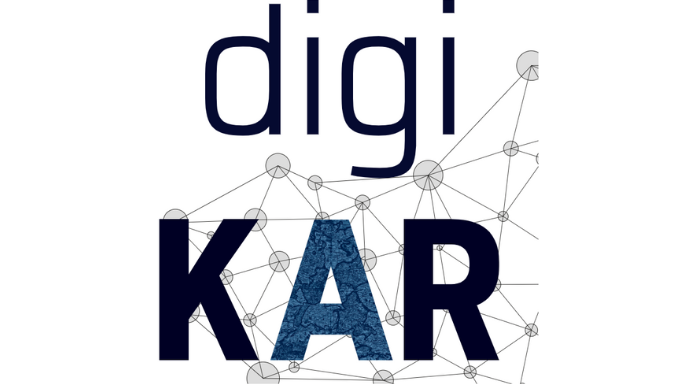
Cow language
Prof. Leonie Cornips is well-known researcher into the language of cows. She has already identified 12 different moo-sounds that cows make. With the help of a research grant from the Barth Misset Fonds, the Animal Labour Union will make instructional videos based on these sounds that will be embedded in the course 'Animal in a Sustainable Society' offered by the Hogeschool Inholland.
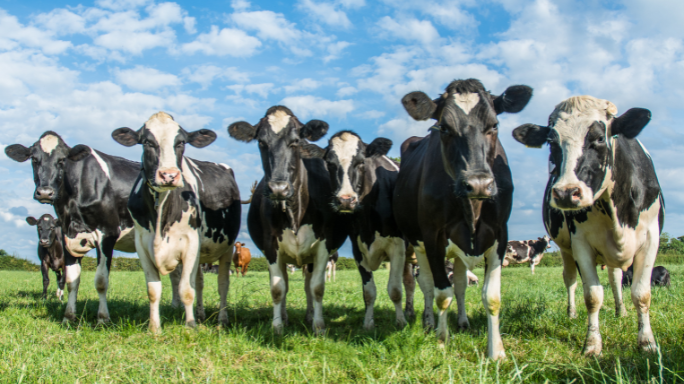
Social Justice and the Digital Humanities
With a grant provided by DARIAH-EU, a 5 ECTS course hosted in #dariahTeach has been developed. It is a joint activity of the #dariahTeach and The Ethics and Legality in the Digital Arts and Humanities (ELDAH) DARIAH working groups.
The goal of this course is twofold:
- To gather examples of digital humanities scholarship and teaching that have embedded in their research a social justice perspective
- To provide a theoretical background, further resources, and bibliography for the case studies and the themes of this course
Digital humanities scholarship is interpreted broadly - embracing digital work in the GLAM (gallery, library, archives, and museum) sector. As such, case studies come from a wide variety of institutions and individuals, highlighting the differing perspectives, terminology, and ethics in working with indigenous or minoritised communities, teaching practices, fields, methods, project or exhibition goals, and institutions.
Project team:
Project partners:
- Aarhus University
- University of Gratz
- The Institute of Ethnology and Folklore Research, Croatia
PURE3D: An Infrastructure for the Publication and Preservation of 3D Scholarship
The Platform Digital Infrastructuur - Social Sciences & Humanities allocated €1,000,000 to the project 'PURE3D: An Infrastructure for the Publication and Preservation of 3D Scholarship'.
PURE3D is developing a digital infrastructure for the publication and preservation of 3D scholarship. Such an infrastructure is timely as it addresses a growing research area, elevating 3D models from static representations to 3D scholarly editions. Building on the conventions of text-based digital scholarly editions, PURE3D will provide tools to a) integrate multiple types of source materials (e.g., annotations, images, video, structured/unstructured data); and, b) document the creation process (paradata), providing users with direct access to the modelling and interpretative choices creating a multimodal resource impossible to replicate in print form.
Thus the goal of PURE3D is to develop
- an access infrastructure for viewing interactive 3D models (from single objects to virtual worlds) within the context of a scholarly publication format (3D Scholarly Editions);
- a preservation repository to deposit raw files, which, due to their size, format, lack of standards etc., are typically inaccessible to researchers beyond the original creators;
- a conceptual and methodological framework for valorising and evaluating 3D scholarship;
- a centre of excellence for researchers embarking on 3D scholarship. The infrastructure will also address the challenges of long-term preservation and access by archiving models and making associated data FAIR (Findable, Accessible, Interoperable, Reusable).
Project team:
- Prof. Susan Schreibman
- Kelly Gillikin-Schoueri
- Sohini Mallick
Project partners:
- KNAW/Humanities Cluster - CLARIAH
- DANS
- 4DRLab
- Gemeente Maastricht
- Nederlands Mijmuseum
- Museum van Bommel van Dam
- Erfgoed Leiden en Omstreken
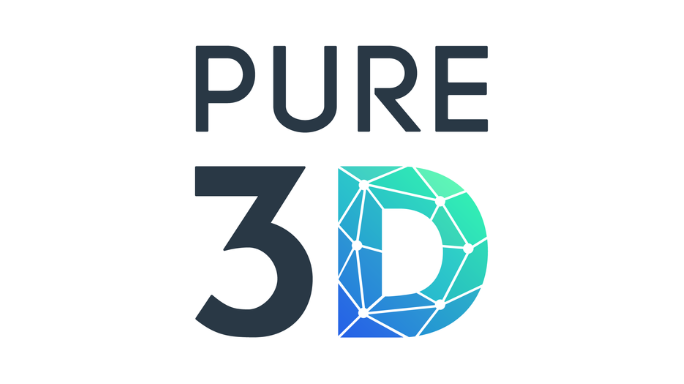
OPER3D: Open Publication and Peer Review for 3D Scholarship
For his project ‘OPER3D: Open Publishing and Peer Review for 3D Scholarship’, Dr. Costas Papadopoulos has received funding from the NWO Open Science Fund.
For 3D to take its place as a recognised scholarly output, it requires open and transparent systems and workflows for publication and peer review.
OPER3D will address these by
- analysing the challenges and opportunities of publishing 3D scholarship;
- exploring peer review of 3D data and outputs;
- situating 3D publishing within developments for revisiting research assessment.
This project will explore if and how PURE3D can be turned into a publication infrastructure with a publication and peer-review workflow for 3D Scholarly Editions.
Project team:
- Prof. Susan Schreibman
- Sohini Mallick
Project partners:
- KNAW/Humanities Cluster
- DARIAH
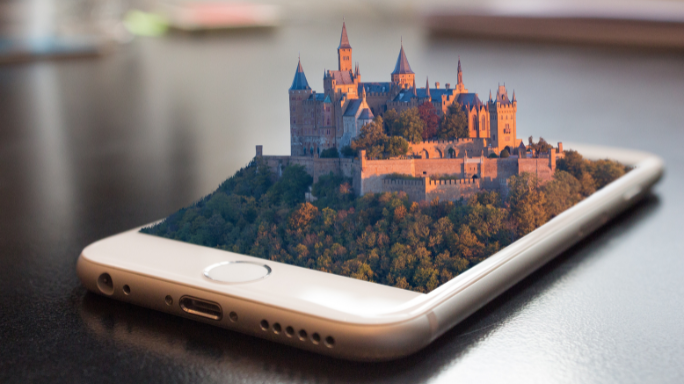
The Walking Seminar. Embodied Research in Emergent Anthropocene Landscapes
Dr. Christian Ernsten received a grant for the project 'The Walking Seminar. Embodied Research in Emergent Anthropocene Landscapes'.
Taking points of inspiration from artistic research methods, STS, Queer Theory and the debate on decolonial aesthesis, and from inspirational thinkers like Rebecca Solnit, Walter Mignolo and Anna Tsing, the Walking Seminar is part homage, part experiment, part decolonial enactment.
Above all, this is a project about the craft of walking, and about the politics and poetics of walking in the Anthropocene. As we encounter beloved landscapes, and as we experience the changes in these landscapes, it is also about saying goodbye.
Project partners:
- Aarhus University
- Royal Academy of the Arts
- University of Cape Town
- Gothenburg University
- Reinhardt Academy
- Amsterdam University of the Arts
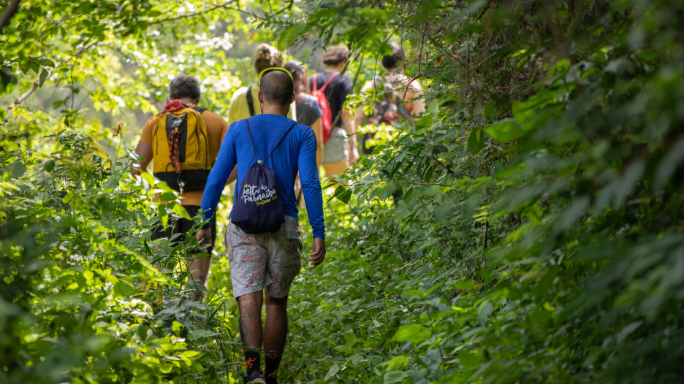
River Ateliers
Funded by the Dutch Cultural Heritage Agency and the Province of Limburg, Dr. Christian Ernsten does research into 'River Ateliers'.
This project focuses on current climate change challenges surrounding the natural and cultural heritage management of a river landscape: the Geuldal in the province of Limburg. The River Atelier project proposes to reactivate the socio-economic function of the Geul river water mills on the basis of the unique combination of archaeological/historical, design and commoning research.
Project team:
Project partners:
- Natuurmonumenten
- Cultural Heritage Agency, the Netherlands
- Province of Limburg
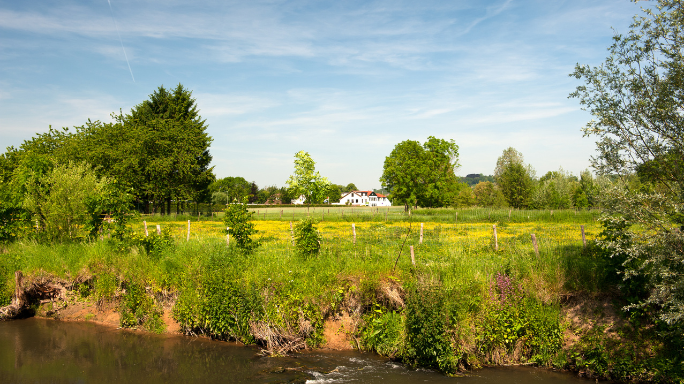
Perverse Collections: Building Europe’s Queer and Trans Archives (PERCOL)
PERCOL asks: how can a critical and nuanced understanding of the evolution of Europe’s LGBTQ+ archives be used by scholars, queer and trans community members, and GLAM (Galleries, Libraries, Archives, Museums) sector workers to forge sustainable strategies for protecting LGBTQ+ history, and in what ways might this have transformative potential for cultural heritage politics and policy more broadly?
To this end, the project will map the growth of Europe’s queer and trans archives, from the 1970s to the present; it will comparatively explore the workings of these collections, including their relations to forms of state support, the understandings of LGBTQ+ history they promote locally, nationally, and internationally, and the alternative models of archiving some embody.
The principal investigator of the Dutch team is Associate Professor Eliza Steinbock, working together with Project Leader Professor Glyn Davis (University of St Andrews, Scotland) and Principle Investigator 2 Professor Juan Suárez (University of Murcia, Spain).
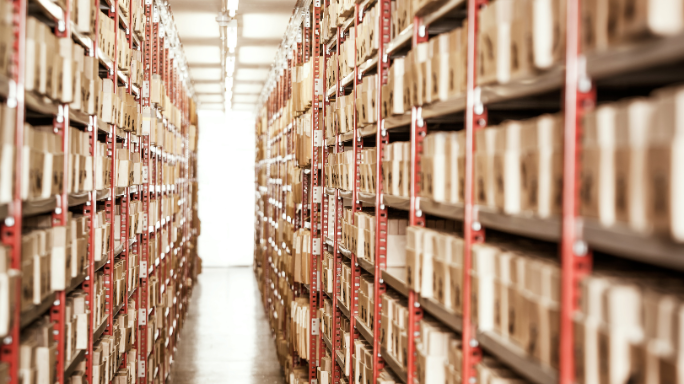
Print on demand: Printing digital artworks through a collaborative mode of production
Dr. Vivian van Saaze received a NWO Museum grant for the project 'Print on demand: Printing digital artworks through a collaborative mode of production'.
How do museums deal with photographic artworks whose physical appearance depends on digital infrastructure? This project explores how museums can carefully manage the path from digital file to photographic print. It develops a conceptual framework and practical guidelines for the acquisition and long-term care of digital photographic artworks.
Project partners:
- Stedelijk Museum
- Rijksdienst voor het Cultureel Erfgoed (RCE)
- Stichting Behoud Moderne Kunst (SBMK)
- LIMA
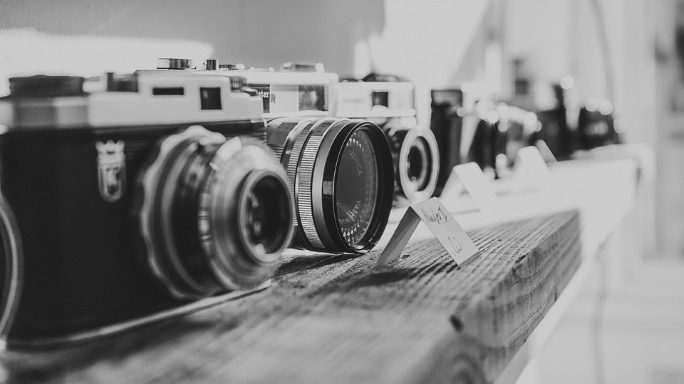
- Senses-based Learning
- Redrawing feminism: graphic narrative engagements with the feminist past
- Towards an Animal Turn in Sociolinguistics. Understanding the dairy cow’s interaction with humans and with each other.
- DigiKAR (Digitale Kartenwerkstatt Altes Reich)
- Cow language
- Social Justice and the Digital Humanities
- PURE3D: An Infrastructure for the Publication and Preservation of 3D Scholarship
- OPER3D: Open Publication and Peer Review for 3D Scholarship
- The Walking Seminar. Embodied Research in Emergent Anthropocene Landscapes
- River Ateliers
- Perverse Collections: Building Europe’s Queer and Trans Archives (PERCOL)
- Print on demand: Printing digital artworks through a collaborative mode of production

